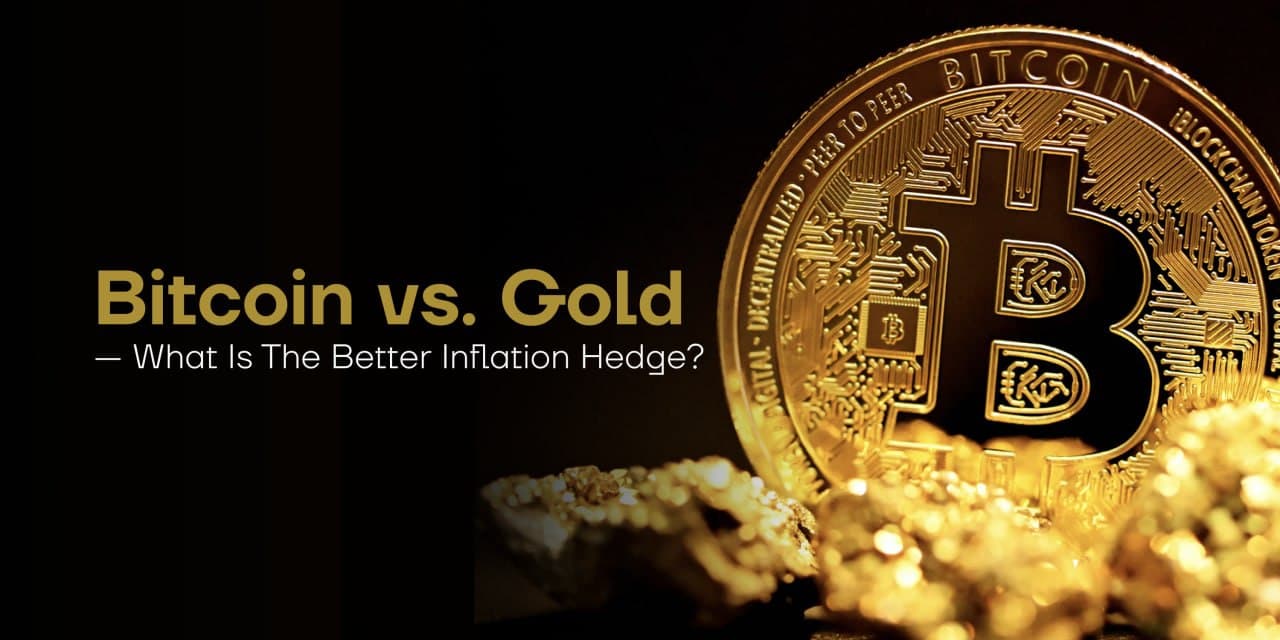Bitcoin vs Gold Inflation Hedge

Bitcoin and gold have both been touted as potential inflation hedges in the face of a prolonged recession. However, the two assets have very different characteristics and risk profiles, making them suitable for different types of investors and situations.
First, let's discuss gold. Gold has been used as a store of value for thousands of years and is often considered a safe haven asset during times of economic uncertainty. Gold is scarce and cannot be produced at will, making it a relatively stable store of value. Furthermore, gold has no yield, so it does not generate any income for the investor. This makes it a poor choice for those looking for an asset that can generate income over time.
On the other hand, Bitcoin is a relatively new asset that has only been around for a little over a decade. It is a digital currency that is decentralized and operates on a blockchain. Bitcoin has a finite supply, with a maximum of 21 million coins that can be mined. This scarcity is similar to gold and helps to support the value of the asset.
One major difference between the two is that Bitcoin has a yield, as it can be mined by users. Bitcoin mining is the process of using powerful computer hardware to solve complex mathematical equations, which generates new Bitcoins. This mining process also helps to secure the blockchain and validate transactions. This yield can be a significant advantage for those looking for an asset that can generate income over time.
Another major difference between the two assets is their liquidity. Gold is a physical asset that can be easily bought and sold on the open market. Bitcoin, on the other hand, is a digital asset that is bought and sold on cryptocurrency exchanges. While the liquidity of Bitcoin is increasing, it is still relatively low compared to gold. This can make it difficult to quickly buy or sell large amounts of Bitcoin.
When it comes to inflation, both gold and Bitcoin can potentially serve as a hedge. Gold has a long history of preserving its value over time, and its scarcity and lack of yield make it a relatively stable store of value. Bitcoin, on the other hand, is a newer asset with a finite supply that can be mined, which helps to support its value. Furthermore, Bitcoin's yield can help to generate income in a time of inflation.
In terms of a prolonged recession, both assets have their advantages and disadvantages. Gold is a more traditional and established safe haven asset that can provide stability during times of uncertainty. Bitcoin, on the other hand, is a newer asset with a yield that can help to generate income during a prolonged recession.
In conclusion, gold and Bitcoin are both potential inflation hedges, but they have very different characteristics and risk profiles. Gold is a traditional and established safe haven asset, while Bitcoin is a newer asset with a yield that can help to generate income. Investors should consider their individual needs and risk tolerance when deciding which asset to invest in. It's important to note that both assets have their pros and cons, and none of them can guarantee a 100% protection from inflation, it's always recommended to diversify the portfolio.
